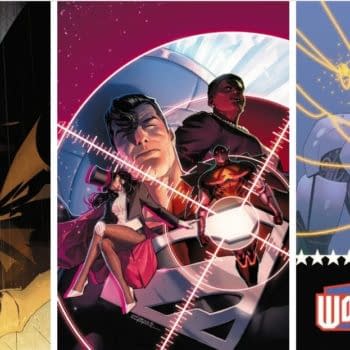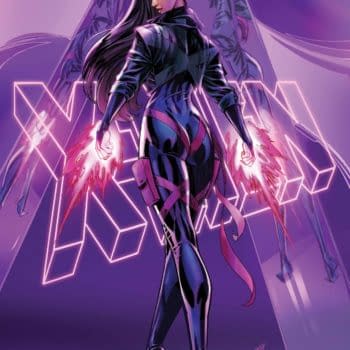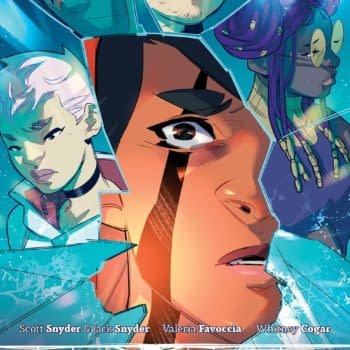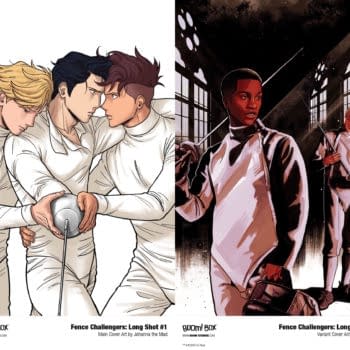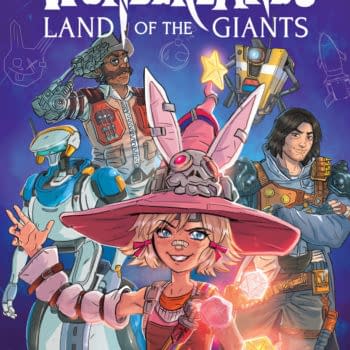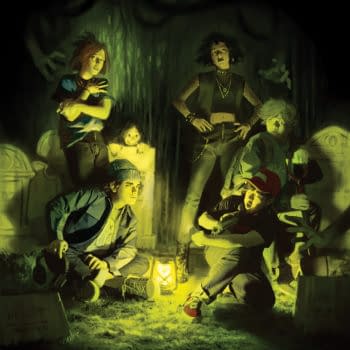Posted in: Comics | Tagged: Comics, david walker, dynamite, entertainment, shaft
"So, What's Shaft, Is That Like Black Dynamite?" – David Walker Talks Shaft
David Avallone, writer of Legenderry: Vampirella #3, talks with writer David Walker about Shaft #5, both on sale now..Covers by Francesco Francavilla and Denys Cowan.

DAVID WALKER: I saw the movie for the first time when it was on television—must've been eleven or twelve at the time. I read the original book sometime in my early twenties. But I was introduced to the character at a very early age, probably around five-years-old. My cousin and I found the soundtrack album in his dad's record collection, and we were mesmerized by the iconic image of Richard Roundtree. You could say that my introduction to Shaft was layered, and spread out over nearly two decades.
DA: Let's talk about the decision to set this in the early 1970s. I'm just old enough to remember the time and I think you capture it beautifully. What thinking went into the decision? Was there ever any thought about updating it?
DW: For me, there was never any choice but to have the book be a period piece. In the novels, Shaft is veteran of the war in Vietnam. His entire youth was spent in war, killing, while the Civil Rights movement was going on in America. This is so crucial to the character that to update it to something more contemporary is to lose something monumentally important to the core of the character.
DA: The book uses some very honest early 1970s language. Was there — or is there – any fear that people will misread that and criticize the book for it?
DW: Not on my part. People will always find ways to be critical, or to be offended. If I had made the language more tame, there would be people who'd be bothered by that. My only concern is to write a good book that is compelling, with characters that comes across as real within the context of the story. If my use of a few words pushes some people away, then I suspect the book was never for them in the first place.
DA: Like me, you work in film and in comics. Can you compare the two experiences?

DA: Is there any other character from the Blaxsploitation genre you'd like to turn into a comic? Foxy Brown? Truck Turner? Priest/Super Fly?
DW: All of the above, plus a few more. Honestly, I'd love to do something with one of the female characters from that era, especially any one of the ones played by Pam Grier. I'd especially love to do an updated version of Friday Foster, which started out as a comic strip. Truck Turner is also a personal favorite. There are also a bunch of pulp fiction paperbacks from that era that would make great comics. Holloway House published an adaptation of Donald Goines's book "Daddy Cool," that was written by Don Dlut and drawn by Alfredo Alcala, and it is amazing (if you can find it). I'd love to adapt some books from that era, like Marc Olden's "Black Samurai" series, or maybe Goines's Kenyatta books. I think the problem is getting publishers to invest in licensing these properties, and then getting readers on board. I can't tell you how many times I've been at a convention, and some kid walks up to me and says, "So, what's Shaft, is that like Black Dynamite?"
For more on Shaft #5, click here.









